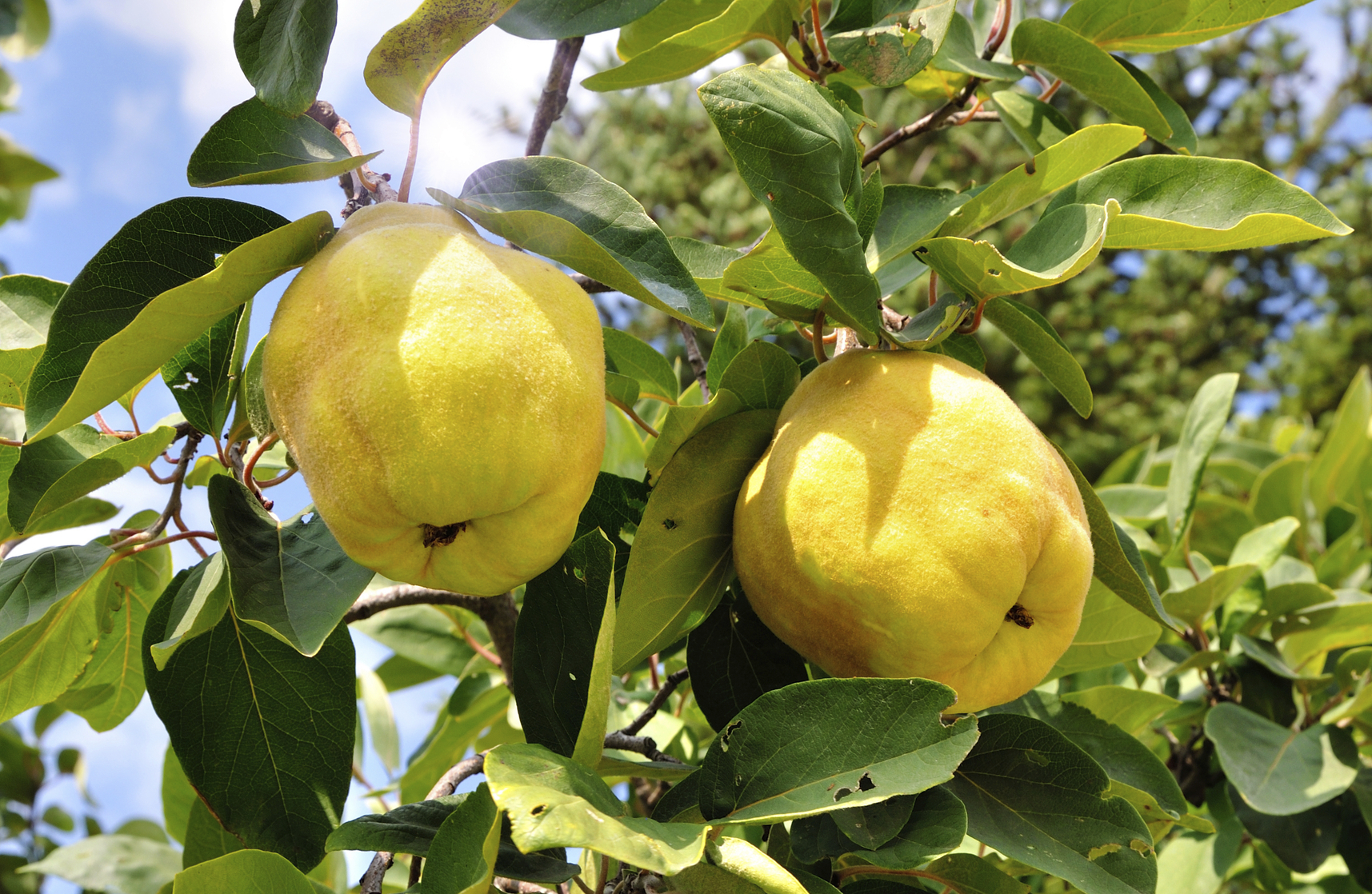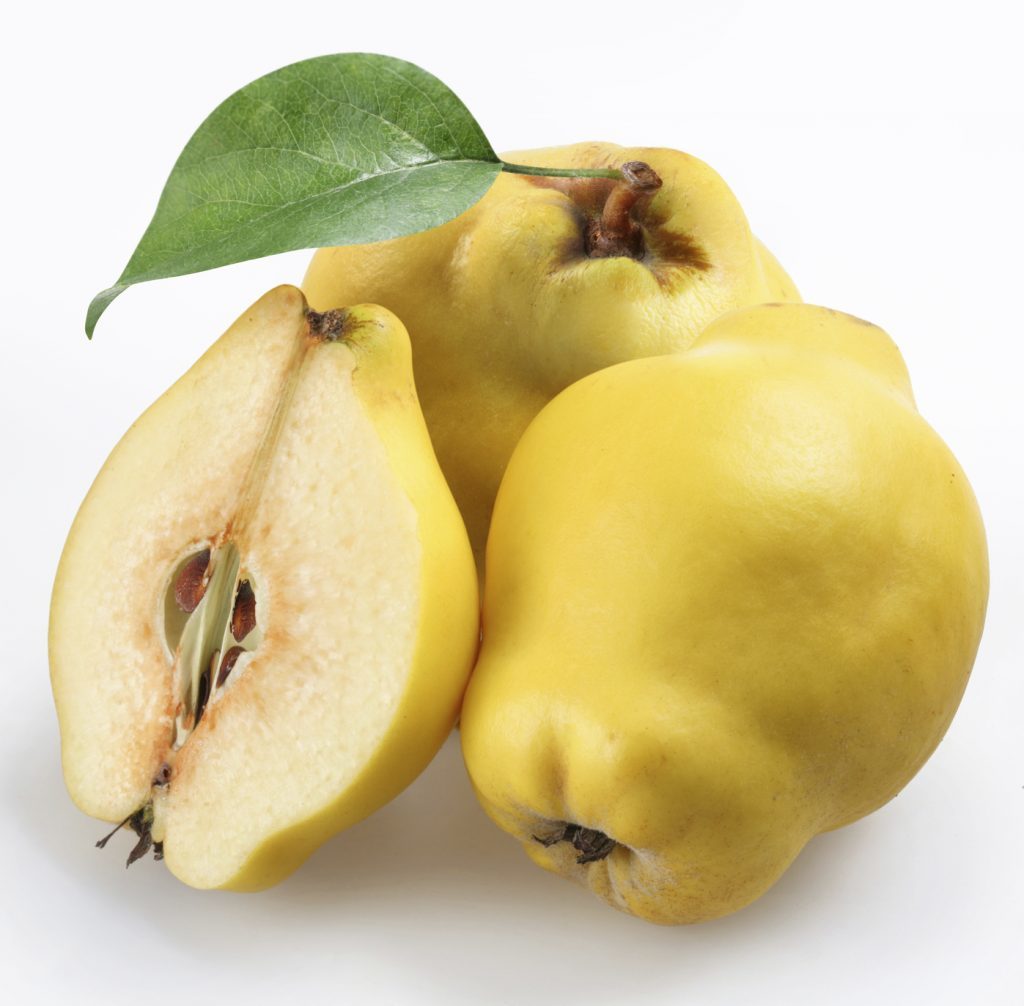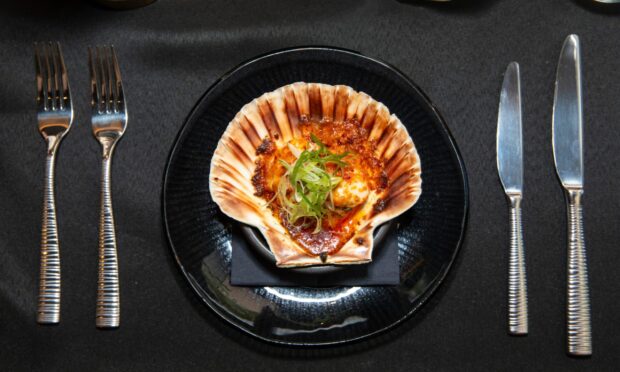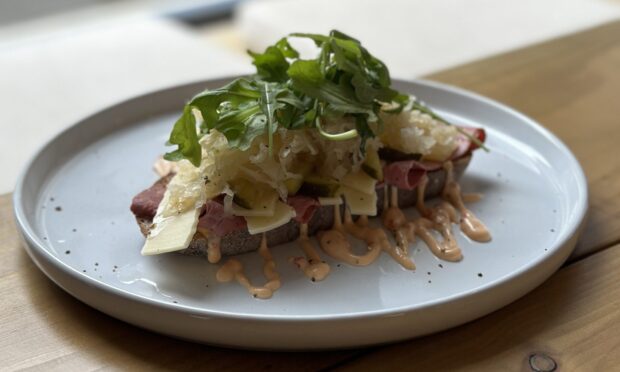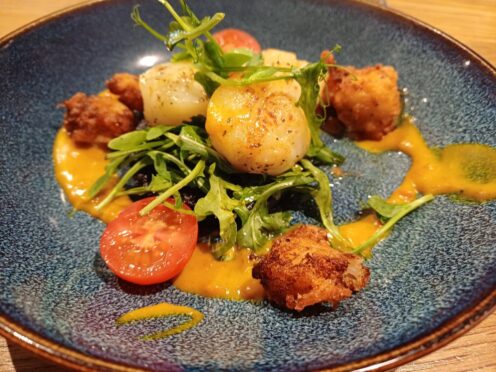Tim Dover, chef proprietor of The Roost Restaurant in Bridge of Earn, knows it must be autumn when the quinces ripen in his garden.
Similar to apples and pears, quince fruit are large and yellow and should be harvested at this time of year. They grow easily in this country but we don’t seem to use them very much – they are rarely available in the shops and people who have quince trees in their garden often let the fruit go to waste.
It is perhaps because they are not sweet or juicy enough to eat raw that makes it tempting to leave them for the birds. My wife is very fond of membrillo or quince paste which the Spanish make and traditionally eat with manchego cheese. It works very well with blue cheese and goats cheese too.
The word marmalade actually comes from the Portuguese word for quince ‘marmelo’, so turning quinces into jam does seem the obvious thing to do.
We have a flowering quince bush or Japanese quince in our garden that bears lots of quinces every year. These are only really good for jelly and a few years ago we made the effort to harvest the fruit and made an excellent jelly which tasted very good and lasted well too. I find that the better normal variety of quinces make just as good an ingredient in their fruit form, and simply poaching them with sugar or honey makes them delicious to eat as a dessert with ice cream or thick natural yoghurt.
If you treat them like a cooking apple, but give them a little longer cooking time, they are very versatile. Once cooked, they have such a lovely almost jelly-smooth texture which works extremely well with pork dishes or in eastern spiced lamb stews for example. There are many Iranian and Persian recipes that use quantities of quinces to great effect.
They hold their form much better than apples, and have a less acidic flavour which is really worth trying. I can see our quince bush from my kitchen window and seeing the fruit begin to fall definitely lets my mind know that autumn is here.
If time prevails I will make a jelly again this year…
Chef’s tip
When preparing quinces, always get rid of the cores as you would do an apple or pear, and you will notice that when you cut into them their flesh will brown much more quickly than an apple. Counter this by brushing them with lemon juice to preserve their freshness as well as add another dimension to their flavour.
